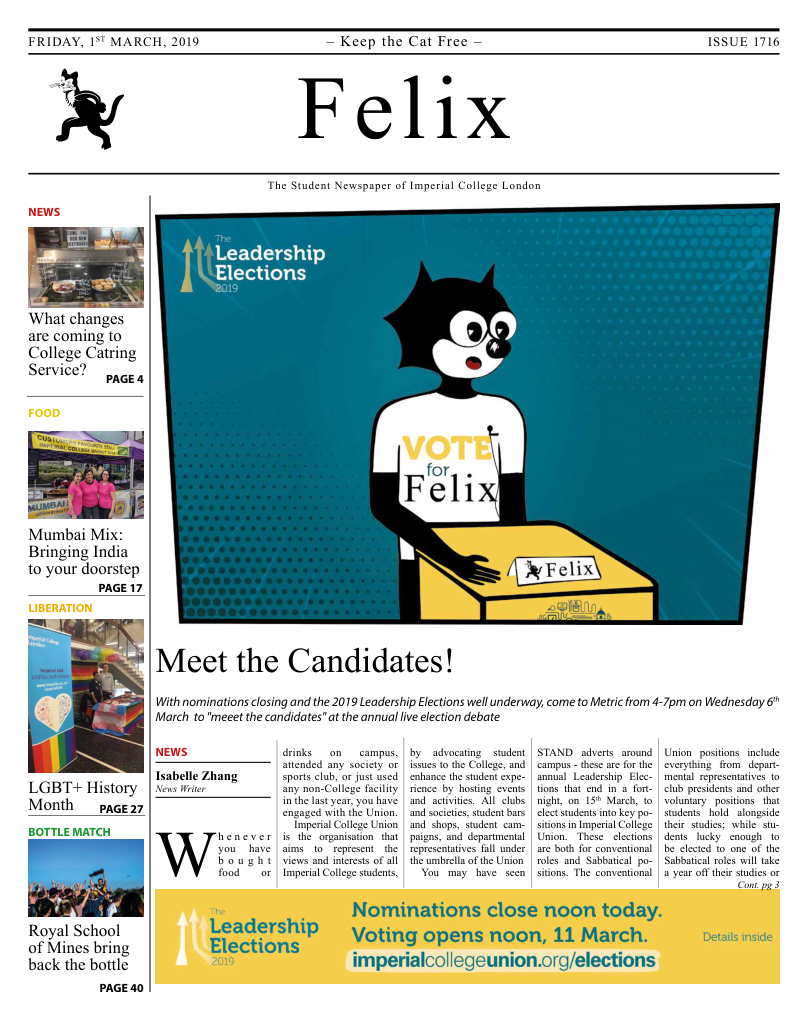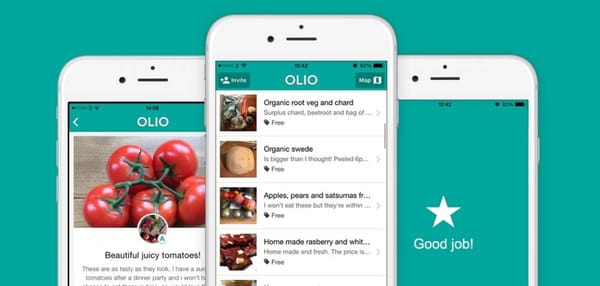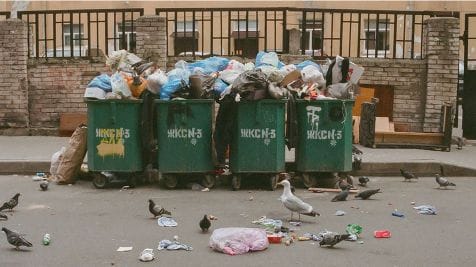Land of Hope and Glory
The film screening of a vegan documentary gives a graphic but true look inside the British animal agricultural industry

On Tuesday, VegSocs from Imperial, LSE, Kings and Middlesex University collaborated to host a film screening of “Land of Hope and Glory”, followed by a talk by the producer, Ed Winters. Ed Winters, also known as “Earthling Ed” is one of the most well-known faces of UK vegan activism, and has been featured in numerous other vegan documentaries. The documentary is one of the multiple efforts to expose the cruelty behind the animal agriculture industry.
During the short but dense 45 minutes of the screening, many students were taken behind the scenes of intensive farming units. The images shown were graphic. portraying the reality of intensive farming: abused, diseased and suffering animals. In addition, the deep, grievous tone of Ed’s narrative that accompanied these videos further intensified the atmosphere in the room. Anyone who had bore witness to those footages could no longer leave the room and simply say ‘I didn’t know’, because we did, and it was almost impossible to pretend that none of the cruelty was happening. The film is available to view for free on YouTube via Earthing Ed’s channel.
What I personally found even more compelling, however, was Ed’s talk that followed. Although I initially had the impression that he might expound his views on veganism, he actually began the talk by frankly admitting that he, not only ate but, loved meat during the first 21 years of his life. He talked about his frequent trips to Domino’s and KFC. This was unexpected, and I’m sure some of the non-vegan students that attended the event felt more relatable to him. By introducing himself as someone who, like many, simply didn’t know the cruelty of animal farming, Ed instantly caught the attention of the whole room. This was then followed by his journey into veganism and his new profound sense of needing to change.
What I personally really loved about his talk was that from the beginning he made it clear that his aim was not to make us all go vegan, but rather, to just get us to look at the reality and ask ourselves questions. Why have we arbitrarily decided that some animals like dogs and cats should be adored pets, but cows and pigs are for us to consume? Tradition and cultures aren’t necessarily ethical or just – slavery and female genital mutilation are cultures in some places. What gives us the right to say that these animals exist just to serve humans? Just because we don’t see the killing, does that mean we can pretend it doesn’t exist? What matters more, satisfying our palates or the life of an individual? How can there be a humane way to kill if all organisms strive to live? These are just some of the prompts that he raised during the evening. It was non-confrontational. Just thought provoking.
One question that I thought reflected the complexity in making veganism mainstream, was whether vegan/vegetarian people should be purchasing the vegan/vegetarian options at chains such as McDonalds. These fast-food restaurants are unlikely to have ethical sourcing at the top of their priority, and purchasing from them could feed in to their business which thrives off of intensive agricultural farming. However, if there isn’t enough demand for these products, they will stop selling them, which consequently gives off the impression to the mainstream that being vegan/vegetarian is still not a societal norm. In response to this question, Ed explained that purchasing these products from chains as McDonalds may be a necessary ‘stepping stone’ in putting veganism out there. If big companies could take on veganism, it could have a more profound impact on society as opposed to a specialised, niche market that only vegan people would purchase from.
As the amount of meat consumption has increased rapidly in the last few decades, it seems necessary for us to take a step back and look at how this has impacted the lives of billions of animals. Telling someone to go vegan is most often not an effective or compassionate approach. But on this night, I truly felt the power of simply witnessing and questioning as a means of getting people to shift their own perspective.







